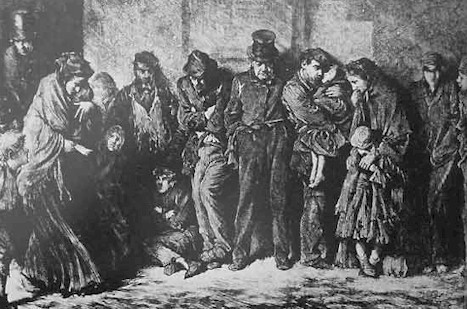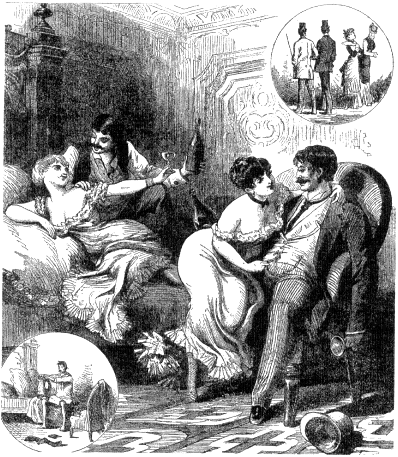Precarity encore. In every village, town, and city, men and women – uncounted millions of them – woke up not knowing how they would survive the day. Their places in the economy were extremely tenuous, depending on their ingenuity and pluck, the charity of the Church or their neighbours, the weather, the time of year, and the mood of the authorities.

Some were day labourers with a little skill they would try to find employment for: carpenters; painters; rat catchers with trained ferrets and mole catchers; “cinderellas”, who collected and sold ashes used for laundering clothes; men called tétaïres, who performed the function of a breast-pump by sucking mothers’ breasts to start the flow of milk; folk who bred maggots for anglers by collecting dead cats and dogs in the attic; women who worked as human alarm clocks; ‘guardian angels’ who were paid by restaurants to guide their drunken clients home; cat exterminators who sell the pelts as sable and the flesh as rabbit meat; renters of leeches for those who cannot afford to buy them. There were the “mud-larks” of London who braved the stinking muck of the tidal Thames for discarded wood, metal, rope and coal from passing ships. There were “pure-finders” who gathered dog faeces to sell to tanners.

Then there were beggars. Beggar women sold their silence to respectable people by making lewd and compromising remarks about them in the street. They borrowed children who were diseased or deformed. They manufactured realistic sores from egg yolk and dried blood, working the yolk into a scratch to produce the full crusty effect. A judge at Rennes in 1787 reported “a bogus old man” with a fake hump and a club foot, another man who succeeded in blacking out one eye to give a terrible, dramatic impression of blindness, and yet another who could mimic all the symptoms of epilepsy. “Abraham men” pretended to be mentally ill and allowed out of the asylum to beg for their keep. “Idle beggar” was a contradiction in terms.

Prostitution, full- or part-time, was the resort of poor women and girls. Employment in brothels depended on government atitudes. The British outlawed bordellos, though it was estimated that 1 house in every 60 in London served that function and that the capital was home to 80,000 prostitutes. The Contagious Disease Acts of 1864, 1866, and 1869, were passed to slow the spread of venereal disease especially by contact between prostitutes and members of the military in garrison and port towns. Women suspected of plying that trade could be detained in “lock hositals” to determine their contagion. Some English regiments reported that half their men had had to be treated for sexually transmitted disease. The French and other European countries sought to contain the public health dangers of the trade by licensing brothels and subjecting their workers to regular medical examinations.